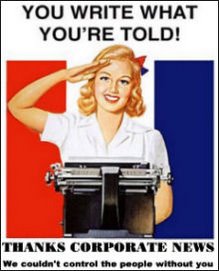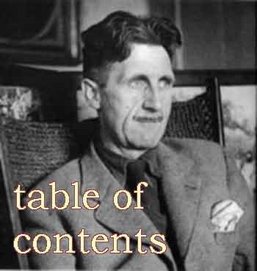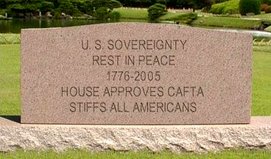Kentucky fans question 'Glory Road' portrayal/ Associated Press Posted: 2 days ago
LEXINGTON, Ky. (AP) - In a movie that seems neatly divided between black and white, fans here are seeing gray - with a strong tint of Kentucky blue.
It's not that most Kentuckians have a quibble with the heroes of "Glory Road" - the 1966 Texas Western team that made basketball history in the national title game by starting five black players. Their dispute is with the perceived villains.
The all-white Kentucky Wildcats lost that game, and actor Jon Voight's portrayal of the late Adolph Rupp has opened a sensitive debate here on whether the Hall of Fame coach was racist.
Some Kentucky fans aren't happy with the portrayal of coach Adolph Rupp (left, played by Jon Voight) in "Glory Road". (Disney Enterprises, Inc./Frank Connor / Associated Press)
"Glory Road," at least in its final form, doesn't say he was. But Voight's Rupp is clearly unlikable and cantankerous and symbolizes the antagonist that underdog Texas Western was fighting against - on the court and off it.
Those who knew him best, however, contend Rupp's only real crime was trying to win a basketball game.
"No matter how strong they make the implications, they cannot make a racist out of Adolph Rupp," said Joe B. Hall, a former Rupp assistant who succeeded him as head coach in 1973.
Rupp's son, Herky Rupp, says he has seen the previews but refuses to watch anything else.
"There has to be a good guy and a bad guy, and Kentucky's going to be the bad guy," he said. "How can someone believe what these revisionists have put out, and how can it grow into such a ridiculous story? This has altered my father's legacy, and not a bit of it is true."
The younger Rupp says his beef isn't with Voight, other than the fact he doesn't think he resembles his father. In fact, Voight called Herky Rupp during shooting to tell him that out of respect for his father's career, he was going to try to make some changes to the script.
Those changes apparently were made, according to Harry Miller III, a Hollywood film editor who grew up in Lexington and saw an early draft of "Glory Road."
In a scene from that version where Rupp gives a pregame news conference, his character used a racial epithet to describe the black players, Miller said. The scene made the movie, but the remark was cut.
Director James Gartner has said only that the Rupp role was handled "with great sensitivity" because the record on the coach's true feelings toward black athletes isn't clear. "I don't want to do any damage to anybody," he told The Associated Press.
Amy Bass, history professor at the College of New Rochelle in New York, agreed that Rupp's record on the subject is murky but said there had long been rumors alleging the coach had racist tendencies. Those perceptions took on new life several years ago, she said, when an article in Sports Illustrated was critical of Rupp's attitudes about race.
"I don't think he was completely an isolationist," said Bass, who this year published the book, "In the Game: Race, Identity and Sports in the 20th Century." "Calling him a racist because he didn't recruit black players is sort of taking him out of a picture that was very large. No one was recruiting black players."
Last month, a Lexington television station aired a documentary - funded in part by the University of Kentucky - that casts Rupp in a far more flattering light than the movie. Based on interviews with former players, coaches and beat writers, it suggests Rupp not only wasn't a racist but spent years actively searching for the ideal player to break the basketball team's color barrier.
Dick Gabriel, the sports manager for WKYT-TV and producer of the documentary, said the issue wasn't home games in Lexington but Southeastern Conference road games in the Deep South. A black player for Kentucky, a disliked program already because of its immense success, would have been subjected to far greater scrutiny than one playing on another SEC team, Gabriel said.
"The South was a dangerous place for African-Americans to begin with," Gabriel said. "Rupp knew his teams were already hated. He said, 'Imagine what it's going to be like when we go down there with a black player who can't stay at the hotel where we stay, can't eat at the restaurants we eat?' Had he not tried to recruit the perfect player - a superstar - then he wouldn't have taken nearly as long."
In 1969, Rupp signed the school's first black player - Tom Payne from Louisville, who spent only a year at Kentucky before entering the NBA draft. By the time Payne joined the Wildcats, the rest of the SEC was almost fully integrated.
At the end of "Glory Road," a note on the screen credits Rupp for recruiting Payne and points out Kentucky's current basketball coach - Tubby Smith - is black. Smith took his players to see the film this past week.
Kentucky president Lee Todd acknowledged the school spent $7,500 to help underwrite Gabriel's documentary, partly to combat fears that "Glory Road" would attempt to torpedo Rupp's reputation.
"It could have been a defensive move," Todd said. "We weren't sure exactly what was going to come out of the movie."
Larry Conley, a player on the 1966 "Rupp's Runts," said he was pleasantly surprised by the film after bracing for an extremely harsh portrayal. Only one line delivered by Voight seems to have racial undertones - when the coach points to the all-black lineup and tells his players, "Clearly, they're going to run at us."
"I really didn't think it was distorted at all," Conley said. "It's hard for people that didn't know the team to look at that and get an understanding of what the team was about after seven minutes on the big screen."
But one longtime Kentucky fan said the movie didn't go far enough in exploring Rupp's racial beliefs.
"It was kind of watered down," said Bill White, a former high school football coach in Louisville. "We perceived him as being racist. I rooted for Kentucky while I was in college, but I'm a black person. I'd imagine every black person in America was rooting for Texas Western."
Danny Haney, a former high school basketball coach in Lexington, attended the same opening night showing with his new players from Coconut Creek, Fla., who were in town for a tournament.
Haney, whose parents have been Kentucky season ticket holders for 46 years, said even Wildcats fans can learn something from the story of Texas Western (now the University of Texas at El Paso).
"This is to educate all our kids about the barriers there were back in the '60's and the difference this made," Haney said. "But, obviously, I'll defend coach Rupp until the day I die."
Subscribe to:
Post Comments (Atom)








No comments:
Post a Comment